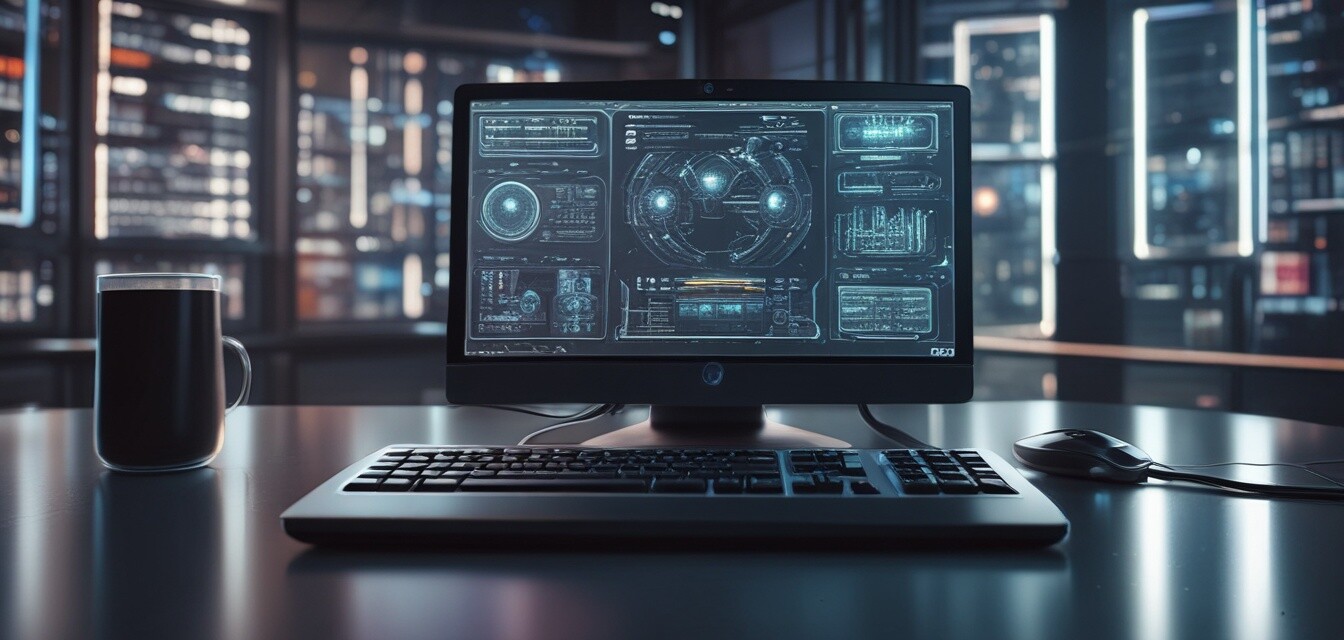
The Future of AI in Personal Computers
Key Takeaways
- AI is revolutionizing user experience in personal computers.
- Personalized assistance and enhanced security are significant benefits.
- Future PCs will leverage AI for improved performance and productivity.
- Understanding AI implications can guide consumers in their purchasing decisions.
- Stay updated with the latest news and trends in AI technology.
Artificial Intelligence (AI) is no longer a concept of the future; it's becoming an integral part of our everyday lives, especially in personal computing. The influence of AI is set to reshape our interactions with computers, enhance functionality, and provide a more intuitive user experience. This article explores the future of AI in personal computers, focusing on its potential impacts on user experience and system capabilities.
The evolution of AI technology in personal computers
AI has come a long way from basic algorithms to sophisticated systems that can learn and adapt. Let's take a closer look at the journey it has taken within the realm of personal computers:
| Phase | Description |
|---|---|
| 1. Early Development | Basic algorithms were used to automate simple tasks. |
| 2. Machine Learning | Systems began to learn from data, improving accuracy and efficiency. |
| 3. Deep Learning | Advanced neural networks allowed for complex analysis and decision-making. |
| 4. Natural Language Processing | Computers could understand and respond to human language more effectively. |
Personalized user experiences
With AI, personal computers are becoming more attuned to individual user needs. Here are some ways AI is enhancing user experiences:
- Smart Assistants: AI-powered virtual assistants make tasks easier by helping with scheduling, reminders, and information retrieval.
- Customized Interfaces: AI can modify the interface based on user behavior and preferences, creating a more personalized environment.
- Predictive Analytics: By analyzing user habits, AI can suggest optimizations for workflow, enhancing productivity.
Enhanced functionality through AI
Not only is AI improving user interaction, but it's also upgrading the core functionality of personal computers:
| Functionality | Traditional Systems | AI-Enhanced Systems |
|---|---|---|
| Task Management | Manual input and management of tasks | Automated task sorting and handling based on priority |
| Security | Standard antivirus and manual updates | Real-time threat detection and automatic security updates |
| Resource Management | Static resource allocation | Dynamic resource adjustment based on usage patterns |
| Data Analysis | Static data reports | Interactive and predictive data modeling |
Impacts on consumers and the market
The integration of AI into personal computers will have broad implications for consumers and the market. Here are some key factors to consider:
- Increased Demand: As users become aware of the benefits of AI, the demand for AI-enhanced devices is expected to grow significantly.
- Variety of Choices: Consumers will likely see a wider array of products that cater to different needs, making it easier to choose the right device.
- Market Competition: Companies will strive to innovate continuously, leading to rapid advancements in technology.
- Informed Purchases: Understanding AI capabilities will empower consumers to make informed decisions, ensuring they leverage tech effectively.
Challenges and considerations
While AI presents numerous advantages, several challenges need addressing:
- Data Privacy: AI systems often require extensive data collection, raising privacy concerns.
- Dependency on Technology: Over-reliance on AI could diminish human skills in certain areas.
- Cost Implications: Advanced AI features might lead to higher prices for consumers.
Pros
- Intuitive user experience
- Improved productivity
- Advanced security features
- Increased efficiency
Cons
- Potential privacy risks
- Higher costs
- Dependency on technology
Conclusion
The future of artificial intelligence in personal computers is promising, offering transformative changes that will enhance user experience and overall functionality. By staying updated on this technology, consumers can make informed decisions that suit their needs. For more insights on technology, be sure to check our buying guides and expert tips for navigating the fast-paced world of PCs and laptops.